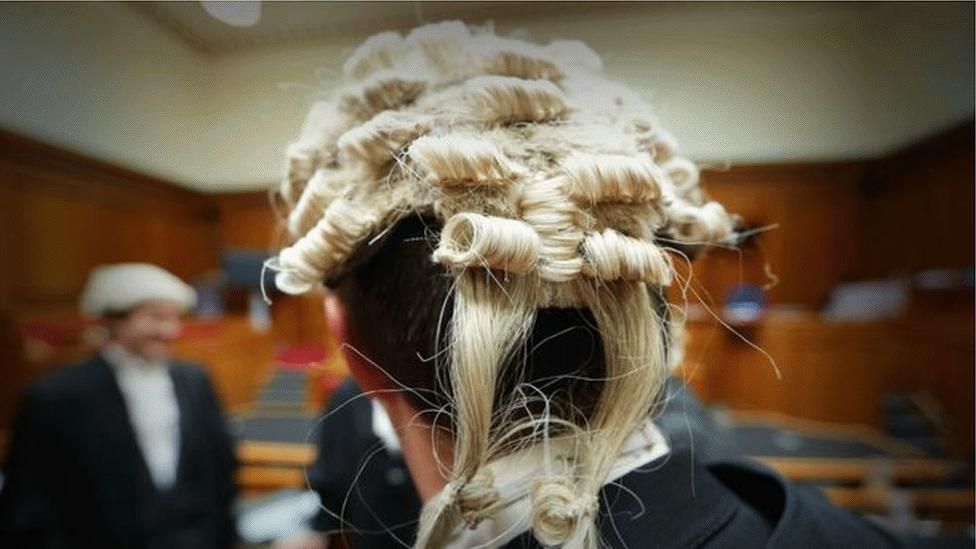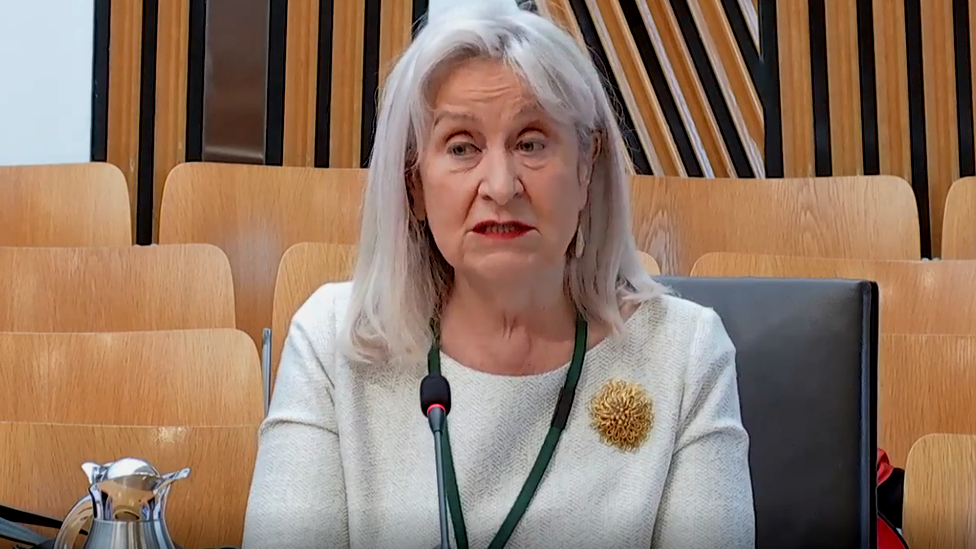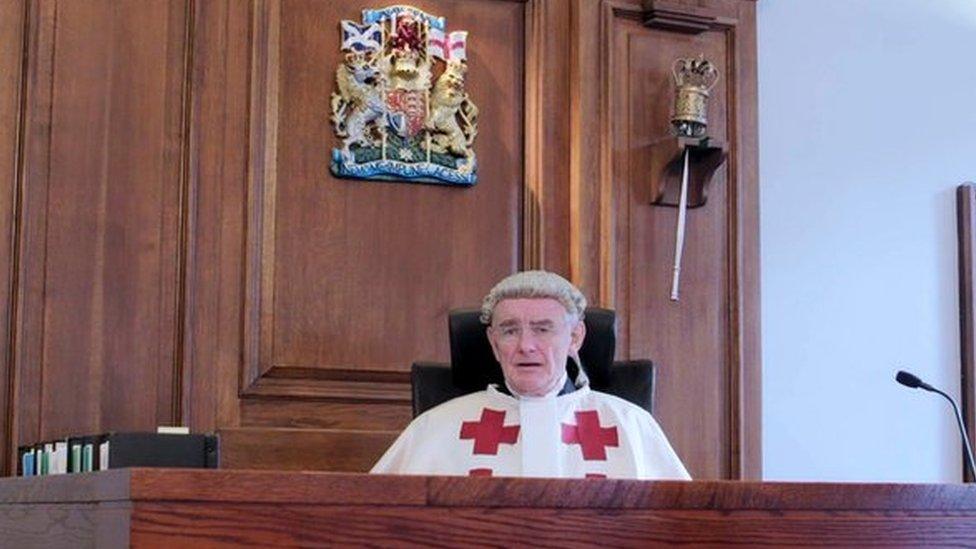Scotland's not proven verdict set to be axed
- Published

The scrapping of the verdict will likely be criticised by some in the legal world
Scotland's controversial not proven verdict is set to be abolished under a new bill to be considered by MSPs.
The country, unlike most of the world's legal systems, has three possible verdicts in criminal cases - guilty, not guilty and not proven.
Changing the unique three-verdict model is part of a planned new Criminal Justice Bill.
First Minister Nicola Sturgeon said the move was "firmly intended" to improve access to justice for victims of crime.
But it has been criticised by some in the legal world, who argue that the verdict offers additional protection to the accused, ensuring they will not be convicted if the jury has any doubts.
The new Criminal Justice Bill will also introduce greater protection for the anonymity of complainers in sexual offence cases.
Speaking at Holyrood, Ms Sturgeon said that if the not proven verdict change is approved by MSPs it will be "a change of truly historic significance in Scotland", adding that it is "one firmly intended to improve access to justice for victims of crime".
A Scottish government consultation published in July showed that 62% of the 194 responses were in favour of scrapping the controversial verdict.
However, the Law Society of Scotland said it had "deep concern" the plans would increase the risk of miscarriages of justice.
Murray Etherington, president of the society, said: "It is in the interests of every citizen that we have a fair, just and accessible criminal justice system for all those involved.
"We are deeply concerned that making such a fundamental change as removing the not proven verdict must be done with the upmost care and consideration for the wider implications and to prevent an increased risk of miscarriages of justice."
Scottish Conservative justice spokesman Jamie Greene MSP said his party had been "demanding the abolition of the outdated not proven verdict for a considerable time".
He added: "Getting rid of not proven is just one step the SNP government must take to rebalance our justice system in favour of victims of crime rather than criminals."
Other justice-related developments in the Programme for Government include:
consulting on draft laws to implement the recommendations in Baroness Helena Kennedy's report on tackling misogynistic behaviours, with the intention of introducing a Misogyny and Criminal Justice Bill later in the parliament
introducing a Police Complaints and Misconduct Handling Bill to improve the way in which complaints about the police are managed and investigated
a Legal Services Regulation Reform Bill to improve the accountability and transparency of the legal complaints system

What is the not proven verdict?

Three verdicts can be handed down in Scottish criminal cases: not guilty, not proven and guilty
Despite being available in all Scottish criminal cases there is no definition of the not proven verdict, or the difference between it and a not guilty verdict.
The legal implications of a not proven verdict are exactly the same as a not guilty verdict - the accused is acquitted and is innocent in the eyes of the law.
Why is it used?
Not proven is seen by some as offering additional protection to the accused but critics argue that it is confusing for juries and the public, can stigmatise an accused person by appearing not to clear them and fails to provide closure for victims.
A study published in 2019 found removing the not proven verdict might incline more jurors towards a guilty verdict in finely balanced trials.
It also highlighted inconsistent views on the meaning of not proven and how it differed from not guilty.
What is the history of the verdict?
In 2017, Prof James Chalmers and Prof Fiona Leverick published a blog post looking at its history, external.
They said there was a common misconception that the not guilty verdict was a later addition to the proven and not proven outcomes.
And they concluded not only is the verdict of "not proven" not Scots law's original verdict of acquittal but today's "not proven" is used for a very different purpose from that for which it was introduced.
In 2015, a review by Lord Bonomy said there was anecdotal evidence that jurors "mistakenly" thought that a not proven verdict left open the possibility of a retrial.

Related topics
- Published27 April 2022

- Published4 April 2021

- Published9 October 2019

- Published13 December 2021
